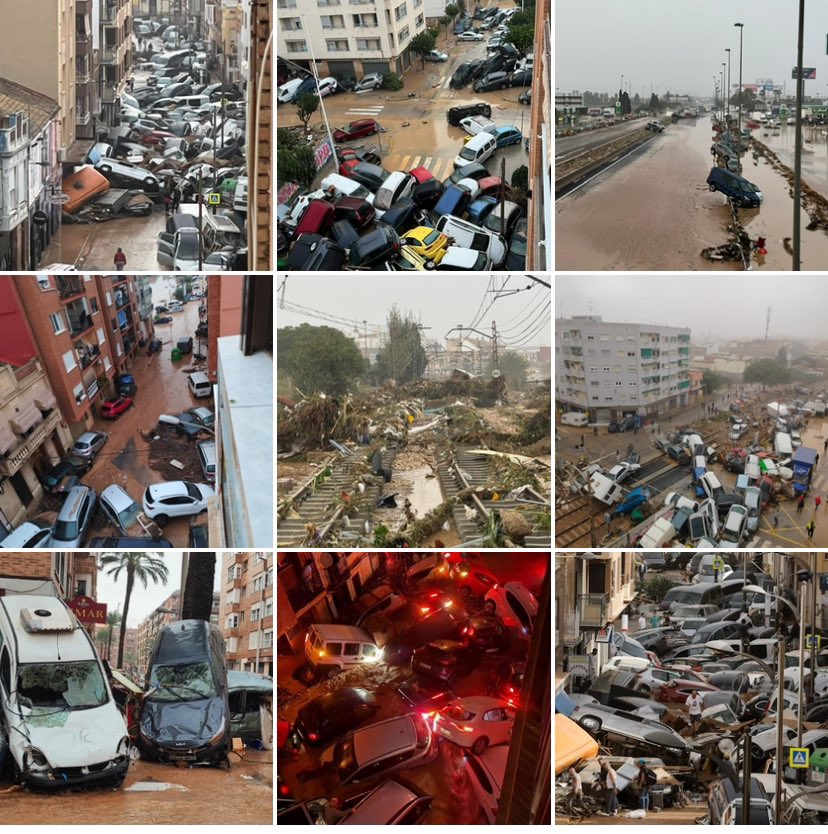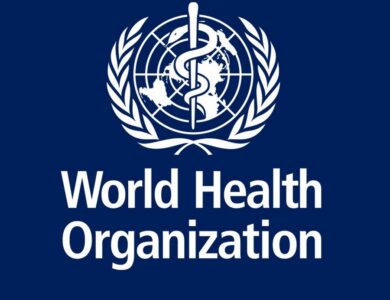Historic Floods Devastate Spain: Death Toll Rises to 205

Madrid: The recent flash floods in Spain have resulted in catastrophic consequences, claiming at least 205 lives and leaving communities grappling with extensive damage. Emergency authorities have reported that the majority of the fatalities occurred in Valencia, where residents are now facing the arduous task of recovery amidst ongoing frustration and a sense of solidarity.
The floods, which struck on Tuesday and Wednesday, were so severe that they transformed the Valencian landscape into a disaster zone reminiscent of a tsunami aftermath. Streets remain obstructed by debris and abandoned vehicles, trapping some residents in their homes without access to electricity, running water, or reliable communication. Survivors are left to mourn their loved ones and begin the painful process of rebuilding their lives.
Residents in towns like Chiva are taking matters into their own hands, clearing mud-filled streets and debris left by the deluge. According to reports, Chiva received more rainfall in just eight hours than it had in the previous 20 months, leading to overflowing gullies that tore apart roads and structures. Local officials have described the situation as dire, with the mayor of Chiva, Amparo Fort, stating that “entire houses have disappeared,” leaving uncertainty about the number of people still trapped inside.
As rescue operations continue, the authorities have reported that 158 bodies have been recovered thus far, with many more feared missing. Members of the security forces, alongside soldiers, are conducting searches for those unaccounted for, particularly in wrecked vehicles and flooded garages. The emotional toll on survivors is evident, with residents like Juan Vicente Pérez lamenting the loss of their homes and memories, expressing disbelief that their lives could be upended in a single night.
In the aftermath of the disaster, a significant wave of local solidarity has emerged. Communities, particularly in areas severely impacted by the floods, have mobilized to help one another. Residents of Paiporta, where at least 62 lives were lost, have been traversing through mud to deliver essential supplies to those in need. This overwhelming sense of community support has prompted authorities to advise against additional traffic, which hinders emergency services.
Organizations such as the Red Cross and local town councils are actively distributing food and supplies to affected residents. However, the situation remains critical, with officials warning of the potential for further storms. Weather alerts have been issued for regions such as Tarragona and parts of the Balearic Islands, raising concerns about additional flooding and hindering recovery efforts.
Many affected areas are still struggling to regain power and access to basic necessities. Although approximately 85% of customers in the region have had their electricity restored, reports indicate that many residents are still without food, water, and essential medicines. The mayor of Alfafar described the conditions as “extreme,” with residents living among corpses and feeling abandoned in their time of need.
The devastation wrought by the floods has raised discussions about the impact of climate change on weather patterns in Spain. According to a recent analysis by World Weather Attribution, human-induced climate change has significantly increased the likelihood of such severe storms. Spain has been facing a prolonged drought, which exacerbated the flooding as the dry ground was unable to absorb the torrential rainfall.
As Spain grapples with this unprecedented natural disaster, the collective grief and determination to recover reflect the resilience of the affected communities. While the physical and emotional scars will take time to heal, the solidarity among residents offers a glimmer of hope in the wake of tragedy. The ongoing efforts to support each other underscore the spirit of unity in the face of overwhelming adversity, as Spain confronts one of its deadliest natural disasters in recent history.
Real-life hero in action!
Risking his own life to save those trapped in floods, showing incredible bravery and selflessness.
True inspiration for us all. 🙌💙 #DANA #Spain #SpainFloods#Floods #Flooding#Inundación #InundacionesEnEspaña #España
pic.twitter.com/tb8bAju95v— Mr. Shaz (@Wh_So_Serious) November 1, 2024
A friend of my mine has just sent me these videos of the floods in Spain.
This is utterly heartbreaking. pic.twitter.com/dP0P7vLazi
— Fr Grant Ciccone (@UrbanHermit15) October 30, 2024
Over 60 people have been killed in catastrophic flash floods in Spain supercharged by burning fossil fuels. The death toll is still rising.
Meanwhile, our government continues to freeze fuel duty and allows tax breaks for oil and gas companies.
We must Just Stop Oil by 2030. pic.twitter.com/BRV2o8EGaP
— Just Stop Oil (@JustStop_Oil) October 30, 2024








